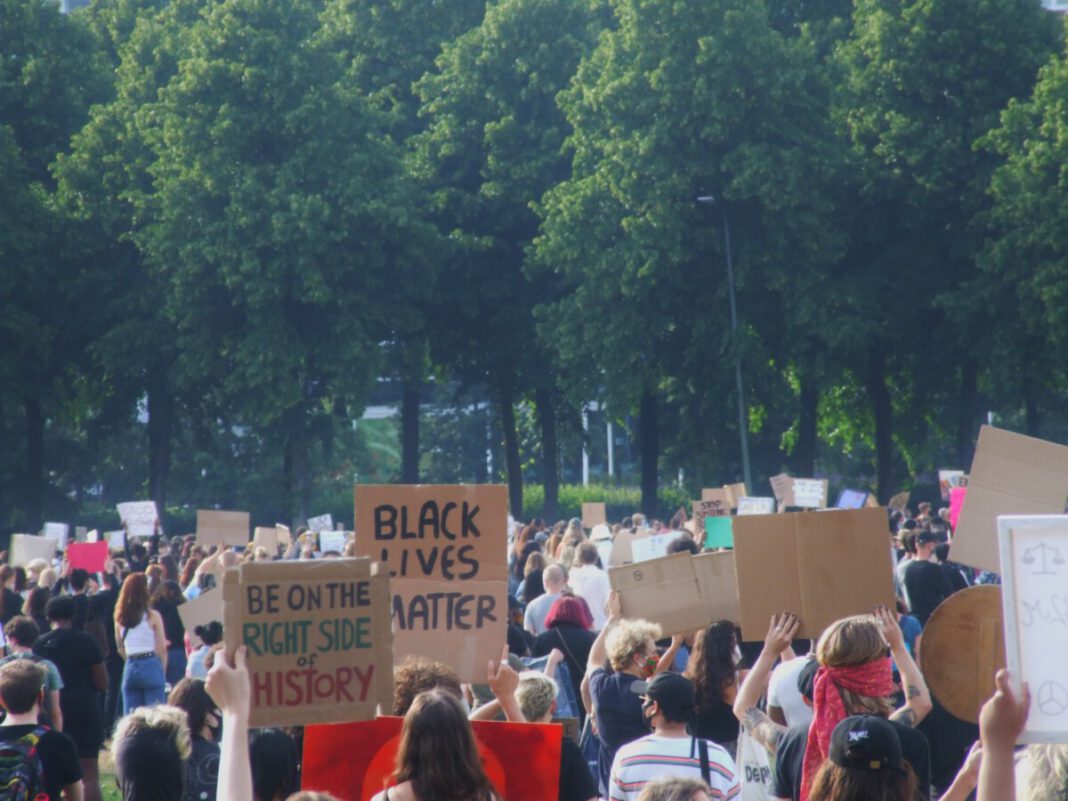Over the past days, protests have taken place across the Netherlands, highlighting the issue of police brutality and racism in the US and EU.
Social media has been full of posts asking people, especially white people, to really work on understanding racism and acting against it: to learn more, to protest, and to be aware of racism in everyday life.
We’ve put together a list of ways you can do this, from books to read to Dutch anti-racism organisations you can donate to. But there is always more to learn, so please do let us know if we’ve missed something: we’d be happy to add it and we want to be better allies too.
Learn as much as you can
Anyone active on social media over the past weeks will have seen a wealth of wonderful resources being shared there. In this article, we’ll mention a few books and videos that are excellent places to start, but there are so many more than what we’ll share here. A good rule of thumb, though, is that you definitely shouldn’t ask the people of colour in your life to explain racism to you personally: you can do that research by yourself and take that burden off them.
Books:
|
Documentaries and series:
|
Donate money to anti-racism organisations
If you can, donate money to anti-racism organisations led by people of colour. You can find a list of organisations in the US that fit this criteria here, but there are also some Dutch organisations that do the same thing. Given that police brutality and institutional racism are also present in the Netherlands, these are also excellent places for your money to go.
- The Black Archives
- Kick Out Zwarte Piet
- Black Queer & Trans Resistance Netherlands
- Nederland Wordt Beter
If you don’t have the money to donate, you can watch this video: all the ad-revenue will be donated to Black Lives Matter. You can also sign petitions, a list can be found here.
Get out and protest (if you can)
There have been many protests over the past few days in the Netherlands, and more are occurring this week: this evening in Rotterdam, and on Friday in Utrecht. Some people might be immunocompromised, or have family members who are vulnerable, and so cannot attend. In that case, doing the rest of the things in this article is a great option.
But if you can get out and protest, do so, especially if you would have had a beer on a terrace, gone to the park or beach with your friends, or taken public transport. Racism is also a global public health risk, and one that has been with us for far longer than coronavirus.
If you’re really not comfortable going right now, then make sure you do go when the risk of coronavirus decreases. There are always protests against Zwarte Piet in November and December, so you can also attend these events if the pandemic has eased at that point.
Keep your eyes open in daily life
Racism is present in the Netherlands, but it can be easy for white people to close their eyes and pretend it does not exist. Part of being an ally in this movement is reacting to racism when you see it occur.
Does a friend of yours make racist jokes? Don’t awkwardly laugh or ignore them next time; instead call them out on it. Have conversations with your friends, family and coworkers about this, even though it may be uncomfortable.
If you see a person of colour being treated differently by an authority figure, whether that’s a teacher or a police officer, do what you can to help, whether by intervening, or just staying nearby and keeping an eye on what happens.
Got any further suggestions for us? Leave them in the comments below and we’ll add them to the list.
Feature Image: Vlad Moca-Grama/Supplied



Besides racism, sexism especially towards non-Dutch women is a serious issue in The Netherlands in my experience.